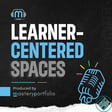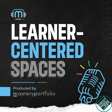
Elaine Roberts teaches AI as a tool.
linktr.ee/ejroberts
Bluesky: @ejroberts.bsky.social
Threads: @elainejroberts
Elaine Roberts: Adjunct Professor, Dept of Communications (writing and gen ed literature) and Division of Education (Children’s and Adolescent Literature); independent consultant as instructional and leadership coach
Past role(s): Systems analyst/programmer (abt 12 yrs for companies including Harris Government Communications Systems and Prodigy when it was still Trintex and just getting started); math/computer science/English professor; corporate wonk for companies including Pearson Education (team design, developed, and maintained online degree content for university partners); Follett Software, Hand2Mind (corporate work with education companies including Pearson & Hand2Mind)
One sentence on your purpose and/or passion: I want to help others be their best selves, which sometimes means helping them discover possibilities they hadn’t imagined.
Additional information such as awards, hobbies, and interesting facts: I’m a research and tech geek. I love to read. I’m an occasional editor. I like to travel, bike, experiment with new recipes, and I like to explore random stuff that seems interesting. I have two Substacks: Mental Peregrinations (https://elainejroberts.substack.com/) in which I ramble about whatever and Learning Out Loud (https://ejroberts.substack.com/) in which I write about things I’m learning related to education.
Music by AudioCoffee: https://www.audiocoffee.net/
Contact us: Starr@masteryportfolio.com crystal@masteryportfolio.com

